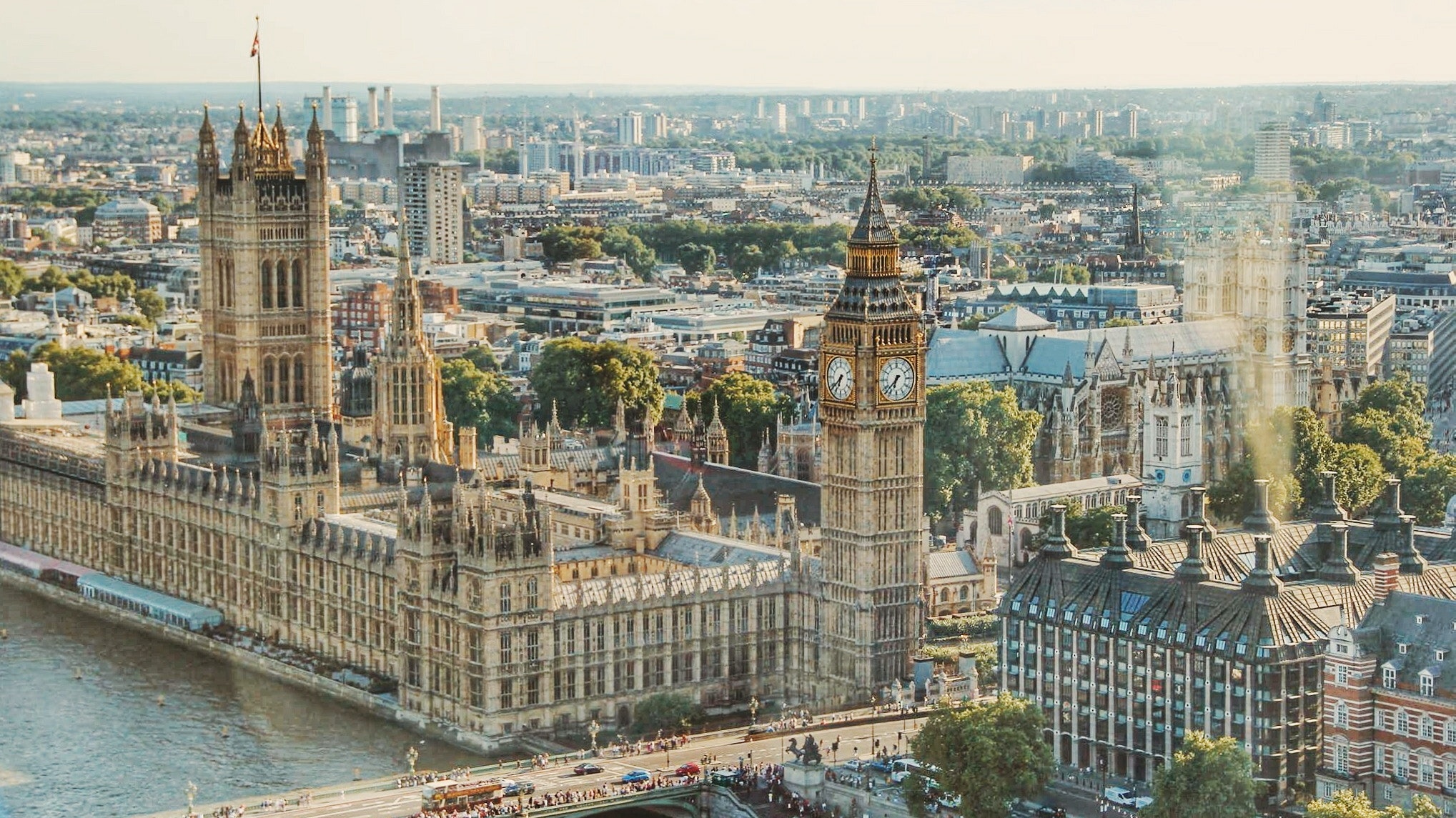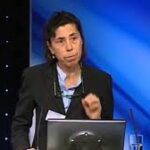Parliamentary Replies from Foreign Office, Home Office and DCMS Ministers about 1. the letter President of the Board of Deputies of British Jews about Uighur Genocide; 2.the need for international support for a full and impartial investigation into the detention of Uighur Muslims; 3.the new report on the persecution of Ahmadi Muslims and the rise of international extremism; 4. China’s failure to uphold Article 18 of the 1948 Universal Declaration of Human Rights; 5. discussions about the detention of Uighur Muslims in camps in Xinjiang with the Ambassador of China to the UK; 6. reports that the influence of Daesh has grown during the COVID-19 pandemic; 7.how many Daesh fighters are known to have returned to the UK; how many such fighters and individuals assisting Daesh in different capacities have been prosecuted in the UK courts, and 8. what progress they have made in establishing how BT verify Huawei’s denials of (1) the use of slave labour, and (2) the use of Huawei technology in oppressing Uighur people.
Government Ministers: Liz Sugg, Susan Williams, Diana Barran
=========
Baroness Sugg, the Foreign and Commonwealth Office, has provided the following answer to your written parliamentary question (HL7068):
Questions from Lord Alton of Liverpool:
To ask Her Majesty’s Government, what assessment they have made of the statement by the President of the Board of Deputies of British Jews, in a letter of 20 July to the Ambassador of China to the UK that “the world will neither forgive nor forget a genocide against the Uyghur people.” (HL7068)
Tabled on: 21 July 2020
Answer:
Baroness Sugg:
We are aware of the statement. We have made clear our serious concerns about the human rights situation in Xinjiang, including the extra-judicial detention of over a million Uyghur Muslims and other minorities in “political re-education camps”, systematic restrictions on Uyghur culture and the practice of Islam, and extensive and invasive surveillance targeting minorities.
Date and time of answer: 03 Aug 2020 at 15:50.
=======
Baroness Sugg, the Foreign and Commonwealth Office, has provided the following answer to your written parliamentary question (HL7069):
Question:
To ask Her Majesty’s Government what plans they have to seek international support for a full and impartial investigation into the detention of Uighur Muslims in camps in Xinjiang. (HL7069)
Tabled on: 21 July 2020
Answer:
Baroness Sugg:
The UK has played a leading role in drawing attention to the deeply concerning situation in Xinjiang. This has included working with international partners in relevant UN bodies, such as the UN Human Rights Council, to call for the UN High Commissioner for Human Rights and her Office to be granted immediate and unfettered access to the region. We also frequently raise our concerns directly with the Chinese authorities, urging them to change their approach in Xinjiang and to respect international human rights norms.
Date and time of answer: 03 Aug 2020 at 15:48.
==========
Baroness Sugg, the Foreign and Commonwealth Office, has provided the following answer to your written parliamentary question (HL7318):
Question:
To ask Her Majesty’s Government what assessment they have made of the report by the All-Party Parliamentary Group for the Ahmadiyya Muslim Community Suffering of the Faithful – the persecution of Ahmadi Muslims and the rise of international extremism, published on 20 July; and what steps they are taking to address the recommendations of that report. (HL7318)
Tabled on: 27 July 2020
Answer:
Baroness Sugg:
Lord Ahmad of Wimbledon was pleased to attend the launch of the All-Party Parliamentary Group for the Ahmadiyya Muslim Community’s report on 20 July. We welcome the thrust of the report and are considering the recommendations made. The UK Government remains deeply concerned by reports of discrimination and violence against Ahmadiyya Muslims in Pakistan and elsewhere. Most recently, Lord Ahmad raised our concerns about Freedom of Religion or Belief, with Pakistan’s Human Rights Minister, Dr Shireen Mazari, on 15 July. We continue to urge the Government of Pakistan at senior levels to guarantee the fundamental rights of its citizens, regardless of their belief.
Date and time of answer: 03 Aug 2020 at 15:48.
==========
Baroness Sugg, the Foreign and Commonwealth Office, has provided the following answer to your written parliamentary question (HL7071):
Question:
To ask Her Majesty’s Government what discussions they have had with the government of China about (1) its rejection of Article 18 of the 1948 Universal Declaration of Human Rights, and (2) whether that government will support Article 18 in the future. (HL7071)
Tabled on: 21 July 2020
Answer:
Baroness Sugg:
We regularly raise human rights concerns, and the need for China to uphold its international obligations with the Chinese authorities. On 9 March the Foreign Secretary raised our concerns about the human rights situation in Xinjiang with his Chinese counterpart, Foreign Minister and State Councillor Wang Yi. On 30 June, the UK read out a statement on behalf of 28 countries at the 44th session of the UN Human Rights Council highlighting concerns about arbitrary detention, widespread surveillance and restrictions, particularly those targeting Uyghurs and other minorities, in Xinjiang.
Date and time of answer: 03 Aug 2020 at 15:36.
========
Baroness Sugg, the Foreign and Commonwealth Office, has provided the following answer to your written parliamentary question (HL7070):
Question:
To ask Her Majesty’s Government when they last discussed the detention of Uighur Muslims in camps in Xinjiang with the Ambassador of China to the UK; and what response they received to any such discussions. (HL7070)
Tabled on: 21 July 2020
Answer:
Baroness Sugg:
The Minister for Asia raised the Government’s serious concerns about the detention of Uyghurs in so-called “re-education camps” with the Chinese Ambassador to the UK during their most recent meeting on 5 March. Officials also regularly raise our human rights concerns with the Chinese Embassy. We will continue to raise this issue with the Chinese authorities, both bilaterally with China and at the UN alongside our international partners.
Date and time of answer: 03 Aug 2020 at 15:35.
========
Baroness Sugg, the Foreign and Commonwealth Office, has provided the following answer to your written parliamentary question (HL6993):
Question:
To ask Her Majesty’s Government what assessment they have made of reports that the influence of Daesh has grown during the COVID-19 pandemic; what is their current assessment of the risk posed by Daesh in the Middle East; and what steps they are taking to address any such risk. (HL6993)
Tabled on: 20 July 2020
Answer:
Baroness Sugg:
We are concerned by reports that Daesh is using the current COVID-19 pandemic crisis to exert their influence. As the Defence Secretary outlined in the Counter-Daesh Statement on 22 July in the House, we continue to work closely with our allies in the Global Coalition to prevent Daesh from resurging, in particular in Syria and Iraq. The Minister of State for Middle East and North Africa discussed this in a Counter-Daesh Coalition Small Group meeting on 4 June. He also raised the importance of the continued fight against Daesh in his conversations with Iraq’s Ambassador to the UK on 16 March and Iraqi Foreign Minister Hakim on 1 April. The UK supports the UN Secretary-General’s call for a global ceasefire in armed conflicts and we will continue to work closely with international partners towards peace in the Middle East, particularly in light of COVID-19.
Date and time of answer: 03 Aug 2020 at 15:07.
=========
Baroness Williams of Trafford, the Home Office, has provided the following answer to your written parliamentary question (HL7040):
Question:
To ask Her Majesty’s Government how many Daesh fighters are known to have returned to the UK; how many such fighters and individuals assisting Daesh in different capacities have been prosecuted in the UK courts, including anyone who has (1) financed, or (2) recruited for, Daesh; on what charges any such individuals have been prosecuted; and what progress they have made on the proposal to establish an international ad-hoc tribunal for Daesh. (HL7040)
Tabled on: 20 July 2020
Answer:
Baroness Williams of Trafford:
Around 900 people have travelled from the UK to engage with the conflict in Syria and Iraq, against the advice of the Foreign Office. Of these, approximately 20% have been killed in the conflict and around 40% have returned to the UK.
The Governments priority is the safety and security of the people who live here. All of those who have returned, have been investigated and the majority have been assessed to pose no, or a low security risk. Around 40 individuals have been convicted on their return from Syria/Iraq, either because of offences committed overseas or for other activity linked to their involvement in terrorism. Individuals can be convicted in UK courts of offences committed overseas (including preparation of terrorism, encouragement of terrorism and membership of a proscribed organisation). Furthermore, through the Counter-Terrorism and Border Security Act 2019, we have extended this to new offences including: inviting or recklessly expressing support for a proscribed organisation and for sharing their propaganda.
The UK continues to work with international partners, as well as partners in the region in seeking to secure the prosecution of individuals who have committed crimes in the name of Daesh. Any such justice mechanism must respect human rights and the rule of law.
Date and time of answer: 03 Aug 2020 at 13:30.
============
Baroness Barran, the Department for Digital, Culture, Media and Sport, has provided the following answer to your written parliamentary question (HL7319):
Question:
To ask Her Majesty’s Government what progress they have made in establishing how BT verify Huawei’s denials of (1) the use of slave labour, and (2) the use of Huawei technology in oppressing Uighur people. (HL7319)
Tabled on: 27 July 2020
Answer:
Baroness Barran:
Section 54 of the Modern Slavery Act 2015 made the UK the first country to require large businesses to report annually on steps taken to prevent modern slavery, including forced labour, in their operations and supply chains. BT are subject to, and comply with, those requirements.
The Act does not require organisations to certify that their supply chains are slavery free but asks businesses to be transparent about their assessment of modern slavery risks and measures taken to mitigate these. To improve reporting quality, we are developing a government-run registry of modern slavery statements to make it easier for consumers, investors and civil society to hold businesses to account. We have also consulted on proposals to strengthen the Modern Slavery Act and increase transparency and improve compliance.
We have been clear that China’s approach in Xinjiang is wrong and must stop. We regularly raise our concerns directly with our Chinese counterparts and are playing a leading role to increase international attention to the situation, including leading a Joint Statement at the UN Human Rights Council in June supported by 27 other countries, highlighting arbitrary detention, widespread surveillance and restrictions, particularly those targeting Uyghurs and other minorities, and urged China to allow the UN High Commissioner for Human Rights meaningful access to the region.
Date and time of answer: 03 Aug 2020 at 13:13




